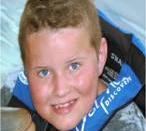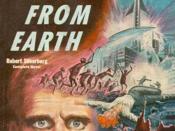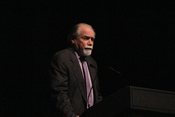The Nature of Man In "Religion and Rocketry"ÃÂ, C.S. Lewis evaluates the theme of murder in order to obtain self-improvement. In his essay he notes that the selfishness of man has been displayed throughout history in our many wars and states, "This is a warning of what we may expect if we ever do discover animal life on another planet."ÃÂ(84). His prediction is that man would dominate and slaughter another species in order to advance the human race just as humans have done to each other in times of war and conflict. This theory can be rationalized by man's history of slaughtering our own species, destroying plant life and endangering animal life in order to obtain some sort of self-improvement. A perfect example of this sort of human selfishness can be seen in Robert Silverberg's "Sundance."ÃÂ This short story deals with the issue of whether it is morally right or wrong to kill in order to obtain self-benefit.
Silverberg takes this issue and displays it in a story of discovering another life bearing planet. He also, just as Lewis, is of the opinion that human interests would be more important to man than the survival of alien life.
Lewis rationalizes his opinion of man by taking a look back at the history of man. He states, "We know what our race does to strangers. Man destroys or enslaves every species he can. Civilized man murders, enslaves, cheats, and corrupts savage man. Even inanimate nature he turn into dust bowls and slag-heaps."ÃÂ(89). Man has a history of holding other life than that-of-there-own to a lesser degree. The white Europeans enslaved the Africans and brought them to the "new-world"ÃÂ in order for them to work as slaves. The Nazi movement in World War II slaughtered and enslaved thirty million Jews. Even in the biblical era the Egyptians enslaved and tortured the Israelites for hundreds of years. Man has quite a history of enslaving, murdering, pillaging, and dominating other man. So what else could we, as the ancestors of murderers, think would happen if life were discovered on another planet other than domination, slavery and death for any species we may encounter. Lewis states, "Our ambassadors to new worlds will be the needy, greedy adventurer or the ruthless, technical expert. They will do as their kind has always done."ÃÂ (89). Our discoverers of new plantets will not look out for the good of other life but only the good of the human race.
In "Sundance"ÃÂ, Silverberg displays his opinion of human nature by telling a story of humans discovering another life bearing planet. The explorers of this planet, just as Lewis predicted, are needy, greedy, and selfish. %They are in the process of a full genocide of a form of extraterrestrial life they call eaters. Ton Two Ribbons, the main character, discover that the eaters enact in a sort of prayer before meals. Silverberg states, "if they (the eaters) are advanced enough spiritually to say grace, are we not therefor committing genocide here?"ÃÂ(535). This sort of thanks giving is clearly an act of a rational, highly spiritual species. Although Tom Two Ribbons speaks out against the genocide occurring the damage has already taken it toll. Silerberg states, "it is 1876 all over again, these are the bison"æ and they must be destroyed."ÃÂ(536). Silverberg creates a comparison between the destruction of the bison and the destruction of the eaters. This comparison helps the reader understand that man has not learned his lesson and probably never will. Silverberg furthermore states, "They (the eaters) have a language of soft sounds. They have a god. They know love, awe, and rapture. They have rites. They have names. They have history."(538). In this statement he is relating the eaters to human in the fact that all the above factors make them the same as the human race. Silverberg makes the eaters seem more humanistic in order to create sympathy for Tom Two Ribbons and the eaters in the reader. He states, "They thrust their plants at me. It is a religious ceremony, I see. Take form us, eat with us, join us, this is the body, this is the blood, take, eat, join. I should be in full paint for this, the paint of my forefathers, feathers too, meeting their religion in the regalia of what should have been mine."ÃÂ(539). Silverberg relates the eaters now to the Native Americans and their religious ceremonies. This slaughter of the eaters is the same to that of the Indians. Again the comparison of past to upcoming future is made.
Both Lewis and Silverberg take issues of the past and relate them to the future. They both agree that man is harsh to all living life intelligent or not. Lewis portrays his opinion through his essay and the presumption of what may happen if man ever does discover life on another planet. Silverberg portrays his opinion through a story as if man has already discovered another life bearing planet and has already made steps into the colonization of it. Both authors portray the same outcome, either man will destroy extraterrestrial life or we must change our selfish nature.
As history has passed we have slaughtered, enslaved, raped, pillaged, and suppressed our own species. We as humans were morally selfish as we killed the bison, destroyed the rain forest, slaughtered the Indians, preformed genocide on the Jews and enslaved the Negroes. Silverberg and Lewis are of the opinion that man has been and will always be inherently selfish. If life is discovered on another planet maybe man can finally realize the errors of his ways and embrace life instead of destroying it.





